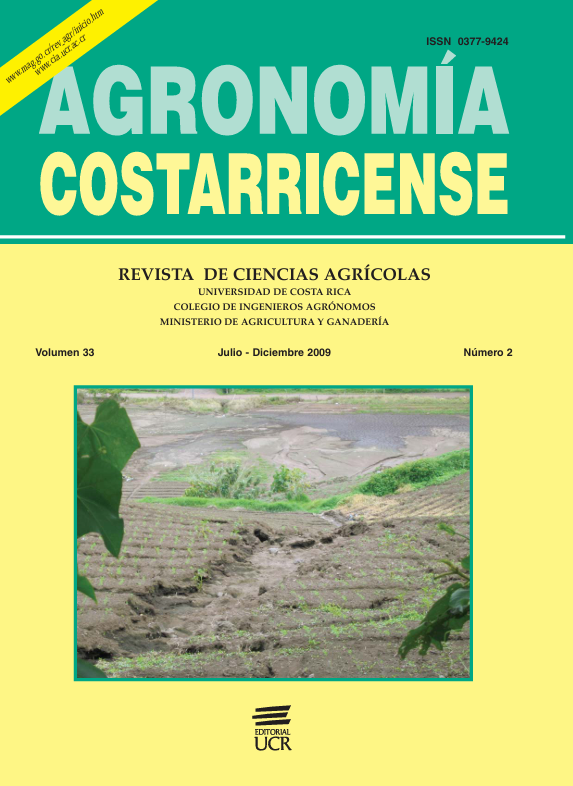Abstract
The goal of this experiment was to evaluate the growth and reproduction of Eisenia foetida - known as “red earthworm”- in 5 organic materials. Treatments were 0.03 m3 of stabilized volumes of cow manure, coffee bean residues, banana residues, ornamental foliage residues, and domestic waste. Substrates were inoculated with 600 worms; which is equivalent to 20000 individuals.m3. Three samplings were made during the composting and the 3 months of the study. The weight of the earthworms varied from 0.34-0.66 g; highest values corresponded to domestic and banana (0.58 y 0.66 g, respectively) and the lowest to coffee bean, cow manure, and ornamental foliage residues (0.40, 0.42 y 0.36 g, respectively). Reproduction and survival were different in each of the residues, being coffee bean residue the highest value in final population (16.900); while banana was the lowest with 408. An inverse correlation between reproduction and weight was found. It can be concluded that both biomass development and reproduction rate are strongly influenced by the type of substrate.
##plugins.facebook.comentarios##

This work is licensed under a Creative Commons Attribution-NonCommercial-NoDerivatives 4.0 International License.
Copyright (c) 2016 Agronomía Costarricense


